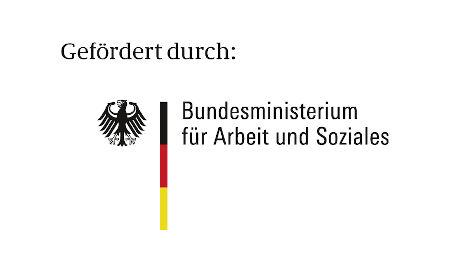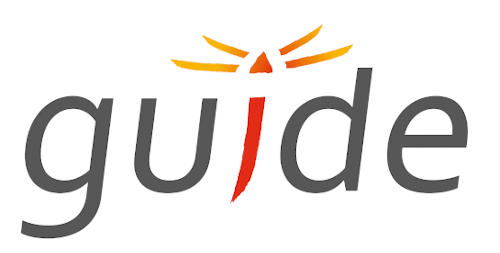GUIDE - Promoting Health for Permanent Employment
Research area Labour policy and health | Kerstin Guhlemann | Dr. habil. Bastian Pelka | Christina Meyn | Gudrun Brieden
The project responds to the risk of permanently excluding people from the labour market due to physical or mental diseases. GUIDE aims to support people with lasting health restrictions to improve their health and well-being and helps them to eventually (re)participate in working life.

Federal Ministry of Labor and Social Affairs - Innovative ways to participate in working life - rehapro
The Federal Ministry of Labor and Social Affairs (BMAS) initiated the federal program "Innovative Ways to Participate in Working Life - rehapro" on the basis of § 11 SGB IX "Promotion of Model Projects to Strengthen Rehabilitation". By testing innovative solutions, successful approaches for maintaining or restoring the earning capacity of people with health impairments are to be identified and implemented across the board.
The project team of the job center and the workshop in the district of Unna is testing a model project within this framework, in which SGB II recipients with permanent health impairments are to be supported in participating in working life again. In a first step, an interdisciplinary team from the fields of health management, social work, occupational therapy, psychology and financial counseling, among others, develops suitable health-promoting and therapeutic measures to improve the health situation of the participants. In the next step, they are offered the opportunity to participate in a "work testing workshop", in which assignments are processed under professional, (ergo-)therapeutic and socio-pedagogical support. The Social Research Center of the TU Dortmund University is responsible for the evaluation and scientific support of this model project.
- Unna District Job Center
- Werkstatt im Kreis Unna gGmbH
GUIDE would like to support the participants of the model project to
- to maintain or restore their earning capacity,
- to counteract a threatening or existing (partial) reduction in earning capacity,
- prevent a chronic illness or impending disability,
- improve social and professional participation.
After completion of the project, the tested procedure is to be transferred to the regular instruments of the Jobcenter Kreis Unna and to other job centers.
Within the framework of the evaluation, the entire course of the project (formative and summative evaluation) as well as the achieved project goals are assessed. Within this framework, quantitative methods (document analysis, panel survey of participants) are combined with qualitative methods (semi-structured interviews, health and quality circles). Thus, it is not only about the collection of health-related key figures and target values, but also about the explorative uncovering of "soft" success factors such as the process experience, the satisfaction of the participants and institutions, as well as the evaluation and balancing of the project progress. Both perspectives can thus be combined into a comprehensive overall picture and made usable for a continuous improvement process.
The scientific monitoring and active public relations and networking work of the Social Research Center supports the project partners in the further development and implementation of the measures as well as the target group-specific transfer of the results into practice and into scientific discourse.




![[Translate to English:] [Translate to English:]](/storages/zentraler_bilderpool/_processed_/a/f/csm_Kontakt_b86e8d8ecc.png)
![[Translate to English:] [Translate to English:]](/storages/sfs-sowi/_processed_/6/c/csm_Glasfront_sfs_Header_eae6d325d3.jpg)
